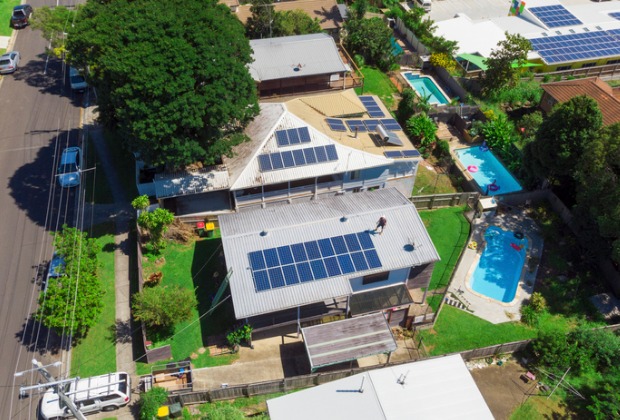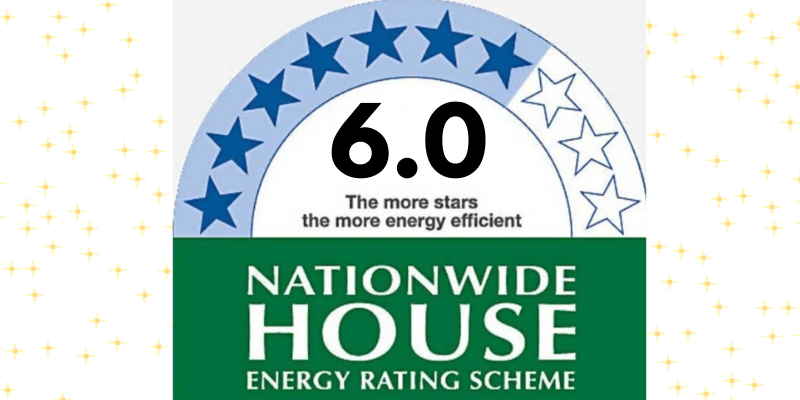National Construction Code (NCC, formerly the Building Code of Australia) specifies the energy efficiency standards that all new homes and some restorations, changes, and extensions must meet.
The most popular method for meeting the NCC’s minimum energy efficiency criteria is through assessments under the Nationwide House Energy Rating Scheme (NatHERS).
Energy assessors use the NatHERS rating tools to estimate how much heating and cooling your home or apartment will require to be comfortable throughout the year. A star rating between 0 and 10 stars is assigned to the results.
Nationwide House Energy Rating Scheme (NatHERS)
New homes can get energy ratings through the Nationwide House Energy Rating Scheme (NatHERS). As a result, it will be easier and less expensive to build homes in the future that are energy efficient, durable, and comfortable.
National Construction Code (NCC)
The NCC mandates minimised energy efficiency performance standards for new construction. The council of Australian governments produced the NCC as a project to unify all on-site plumbing and building requirements into a single code. The NCC establishes the minimum standards for building design, construction, and performance in Australia.

What the stars mean
A star band is a term that describes the range of stars from 0 to 10. The energy needed for residences in various areas is used to estimate star bands.
For instance, if the temperature outside is 20, the interior will be 30. A 10-star residence can keep its interior at a suitable temperature year-round regardless of the weather outside. Therefore, a house uses less energy the more stars it has, which lowers energy costs.
- A 0-star rating means that the house structure’s exterior offers little to lessen the discomfort of hot or cold weather.
- A 6 star rating is the standard level of compliance with the National Construction Code necessary for a home. It indicates good, but not outstanding, thermal performance.
However, there will be an upgrade from 6 to 7 stars in the minimum standard for new homes and apartments (out of 10). On October 1, 2023, energy efficiency requirements will go into effect.
Additionally, it will implement a new yearly energy use budget to account for the essential fixed appliances in a home and any energy produced (e.g. house solar panels).
- A 10-star – The home is entirely passive, requiring no artificial heating or cooling to maintain a comfortable inside temperature and relative humidity.
Energy Matters has a nationwide network of trusted local solar installers in Melbourne ready to provide you with up to 3 Free Solar Quotes. Complete our quick quiz and begin your solar journey today!
An energy rating of six stars: how do I get one?
The Nationwide House Energy Rating Scheme (NatHERS), certified software, is required to obtain a minimum of a 6 Star Rating for all new residential buildings in Australia (save for NSW and NT) under the National Construction Code. NatHERS rating is calculated utilising research from Commonwealth Scientific and Industrial Research Organisation (CSIRO). The software determines the energy required to heat, cool, and heat the house and converts this energy value into rated energy efficiency.
The following design criteria can help establish the minimum requirement for homes:
- northern orientation of living rooms
- minimising the area of east and west facing walls and windows
- natural ventilation through windows and doorways
- ventilating the roof space via roof and eave vents
- ceiling fans in living areas and bedrooms
- well-designed outdoor living areas
- shading with wider eaves and awnings
- insulation in roof space and walls
- high-performance glazing
- light-coloured roofs and walls.
What’s not rated
NatHERS ratings do not consider domestic appliances, hot water systems, or lighting because they are frequently replaced throughout a building’s lifetime.
6 star standard energy rating assessment
The Assessor can input your house plan or construction details into NatHERS accredited software which produces a star rating. Make it possible for a professional to assess the work done at the beginning of a project. Your assessor may recommend important aspects like orientation and construction of the house, which may only be possible once the project’s approval is done. The quality of the product is critical for its success.
A NatHERS Accredited Assessor or a non-accredited assessor can perform your home’s energy rating assessment. Different Australian states and territories have varied standards for accepting house energy rating certifications from non-accredited assessors to satisfy compliance with building approvals. You should check your local requirements.
Construct a simulation model
Data will be entered into the programme by a NatHERS-accredited assessor to create a simulation model of the home. The simulation model will include the following information: room sizes and purposes; opening sizes and specifications; building materials/windows/products; type of construction; and orientation and location of the dwelling.
Calculating the development's temperature
The simulation model will determine the level of heating or cooling required for occupant comfort inside the home.
Determining whether heating and cooling systems are necessary
When interior temperatures fall outside a comfortable range, the NatHERS Accredited software model will determine whether heating and cooling systems are required. It is predicated on the idea that people will open and close windows, blinds, or awnings to try and get the temperature back to a comfortable level before turning on the heating or cooling system.
Making a rating out of 10
After the earlier processes are finished, a ranking of 10 stars is used to determine the total annual predicted energy-efficient heating and cooling levels.

As NatHERS energy ratings are based on how well will design the dwelling, items like air conditioners and others are typically not required to be disclosed to the assessor. The building’s new appliances expected to be replaced in the future are not considered.
Let us discuss and choose the best quote that suits your needs and budget. Use our free solar quote system to get up to 3 free solar quotes from our network of trusted, local installers.














































